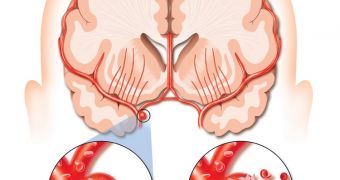A small, New York-based startup called Acorda Therapeutics is developing a pill that could reverse the effects of a stroke up to six months after the event occurred. Currently, the window for administering treatments against this condition lasts for only a few hours.
If the pharmaceutical company manages to pull through, then it would provide a sign of hope for more than 7 million stroke victims in the United States alone. For these individuals, physical therapy is the only means of addressing the negative effects of strokes.
According to official statistics, nearly 800,000 people suffer from stroke annually. If the new pill is developed, then these individuals could potentially recover some of their lost neural functionality even several months after the adverse health event occurred.
Strokes are caused by blood clots that form within various vessels in the brain, preventing the correct irrigation of different portions of the brain. When this happens, the cells in those regions begin to die off. Only prompt medical intervention can minimize the damage.
Clot-dissolving drugs are the only method to reduce cellular damage. But doctors only have a few hours to administer these substances to patients, and very few people go to the hospital in time for this procedure to have any chance of success, Technology Review reports.
“If they miss this therapeutic window, the consequences are heavier, so it's important to be able to do something for those patients who miss that window,” explains stroke expert Francesca Bosetti, from the National Institute of Neurological Disorders and Stroke (NINDS).
The drug Acorda Therapeutics is developing will act directly on damaged nerves, which are responsible for transmitting electrical signals in the brain. Their inability to do so is largely responsible for why stroke victims are paralyzed, or otherwise physically incapacitated.
The active ingredient is called dalfampridine, and testing on the limbs of rats demonstrated that it is very effective at improving the function of damaged motor neurons. If the same results can be translated into humans as well, then we can expect to see new stroke therapies coming out soon.
The company now wants to conduct a clinical trial on 70 volunteers who suffered from stroke within the last six months. “That's the time that deficits seem to stabilize, so we can eliminate naturally occurring improvements in patients,” Acorda spokesman Jeff MacDonald explains.

 14 DAY TRIAL //
14 DAY TRIAL //